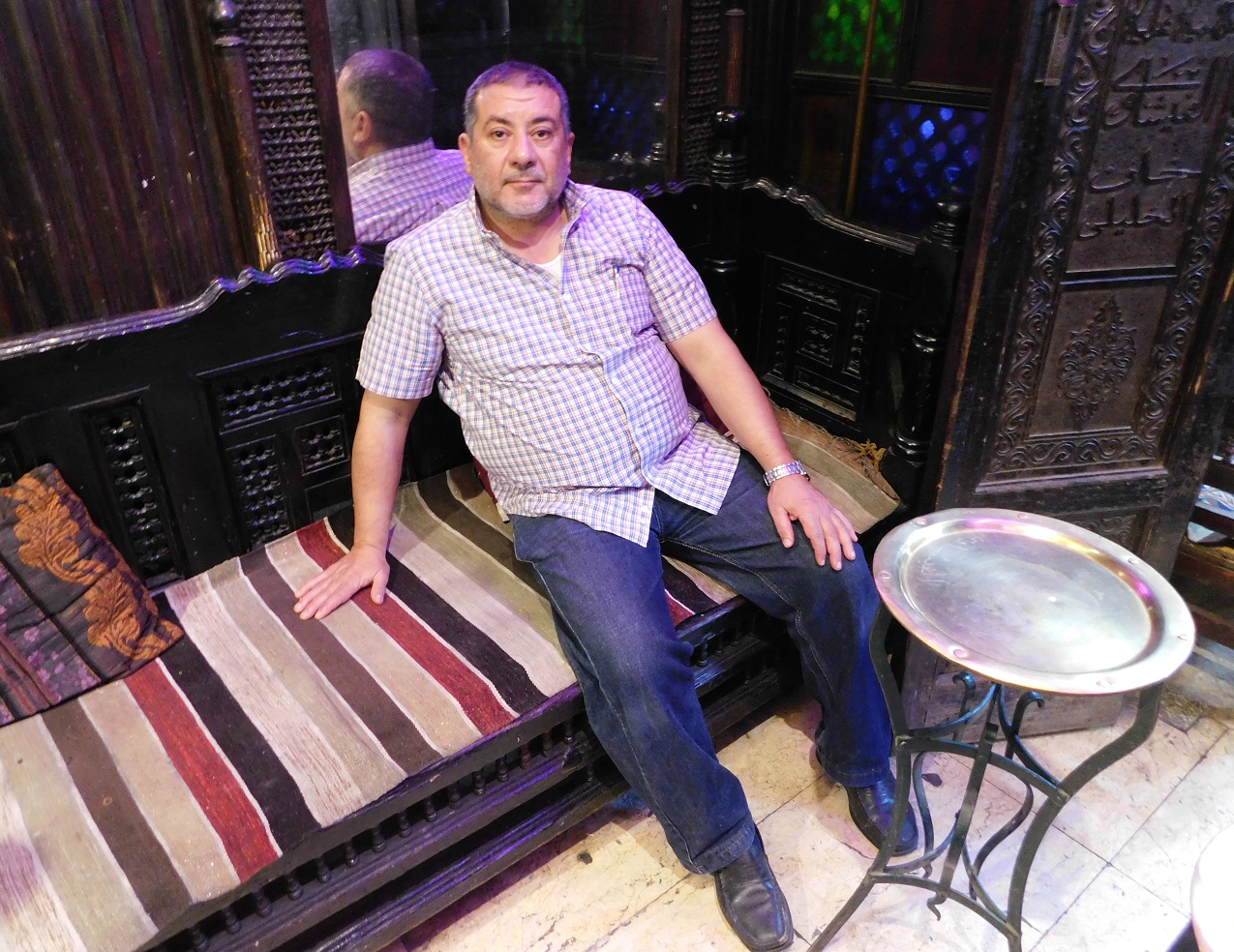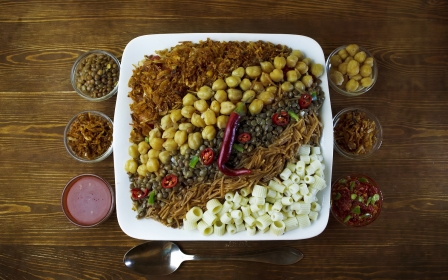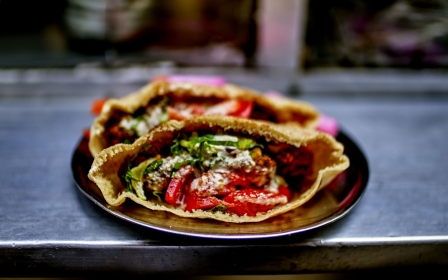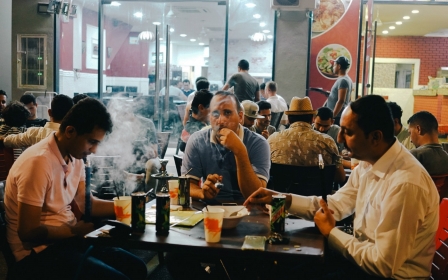The Cairo cafe serving tea since Napoleon invaded Egypt
It’s a little before sunset that the customers start heading down a small alley close to the Khan el-Khalili souq – and one of Egypt’s most popular tourist stops.
The El-Fishawy cafe first opened its doors in 1797 – one year before Napoleon Bonaparte invaded Egypt.
Akram el-Fishawy, 60, is the seventh generation of his family to manage the coffee house, as he has done day and night for the past four decades.
“I don’t show up one day, I feel that there is something missing,” he says. “What distinguishes this coffee shop is its authenticity that has survived throughout the years.”
New MEE newsletter: Jerusalem Dispatch
Sign up to get the latest insights and analysis on Israel-Palestine, alongside Turkey Unpacked and other MEE newsletters
The first owner of the cafe is now only known as el-Fishawy: his first name is lost in time. He began by serving Turkish coffee to his friends after sunset: as the gatherings grew, he bought the buildings nearby to establish a venue, adding other drinks as well as shisha.
During the early 20th century the cafe was noted for its intellectuals and writers, especially during Ramadan, among them the 20th-century Nobel-Laureate Naguib Mahfouz. King Farouk, Egypt’s last monarch, also frequented.
“Mahfouz liked to drink green tea while writing inside a hall that we later named after him,” says Fishawy. “I assume he wrote most of his famous trilogy inside the cafe.
“The late Nobel-Laureate Ahmed Zewail was a regular too whenever he visited Egypt. He also liked to drink green tea.”
Fishawy adds: “I myself witnessed the al-Qafya [rhyme] games between two groups during the 1950s, who would answer each other, depending on their verbal wit. It lasted all night long. Naguib Mahfouz was always undefeated.”
The cafe itself has also changed and used to be four times bigger. But in 1986 the Cairo authorities expanded the neighbourhood around Hussein Square and swallowed up most of its space.
“My grandfather Fahmy el-Fishawy was devastated by that decision,” he says. “He attempted by all means to change their minds even by offering financial compensation but his attempts were not successful.”
Yet El-Fishawy retains its ambiance. Handmade arabesque furniture meshes with dark mashrabiya panelling and yellow ochre walls. Old copper chandeliers hang from the ceiling. Everywhere there are mirrors, creating a sense of space.
“My grandfather, Fahmy el-Fishawy, asked the workers to install mirrors throughout the place,” says Fishawy, “to be able to monitor in and around the area.”
The air hangs with the scent of old wood, incense from the market and the aroma of fruit flavoured shisha.
In the background can be heard a street singer, accompanied by an oud, singing the ballads of the legendary Egyptian singer Umm Kulthum to the cafe visitors.
The house speciality is shai barad or boiled tea, heated in a basin of sand. “Tea boiling in the sand tastes different, maybe because the temperature of the sand is different from that of the oven,” says Samir Abu Douma, who is in charge of the process.
It is open 24/7, reflecting Cairo’s night life. It is livelier after sunset, especially during the summer and also Ramadan.
There is rarely a wait for a table: drinks are also affordable for tourists, with tea at 20 Egyptian pounds - about $1.20 – and shisha slightly more depending on the flavour and type of tobacco.
The arrival of mass tourism in Egypt saw El-Fishawy – which is dubbed the “international coffee shop” – become part of the modern-day visitor circuit.
Sam Molder, an American, says: “I visited Egypt twice before, and one of the first places I have to drop by when arriving in Cairo is El-Fishawy.
“Even though it is always overcrowded, I feel a sense of inner peace when I sit there, maybe because I’m fond of whatever is ancient.”
For locals it still has resonance. “Everything about El-Fishawy tastes and feels different,” says Ahmed Hamouda. “I sense the lovely old times I didn’t have the chance to live in when I sit there.”
Fishawy notes how the faces have changed. “The customers are not the same, but nowadays Egyptian youths appear here rather than older ones,” he says. “Sometimes parents come along with their families to show their kids the place they used to visit.
“We used to receive groups of tourists all year long in the past. But now the presence of Egyptians somehow makes it up for us,” Fishawy says.
Regardless of the customer, he believes one thing will not change at the cafe.
“Oriental cafes in Egypt attempt to imitate the spirit, but they lack El-Fishawy’s ambience.”
This article is available in French on Middle East Eye French edition.
Middle East Eye delivers independent and unrivalled coverage and analysis of the Middle East, North Africa and beyond. To learn more about republishing this content and the associated fees, please fill out this form. More about MEE can be found here.





